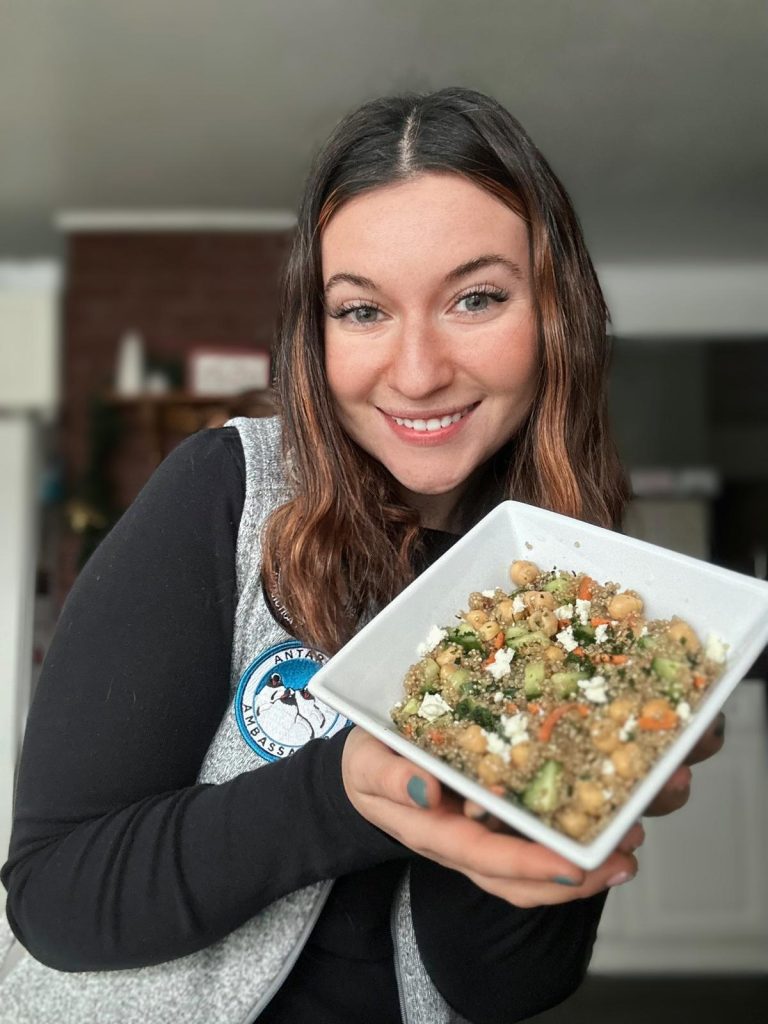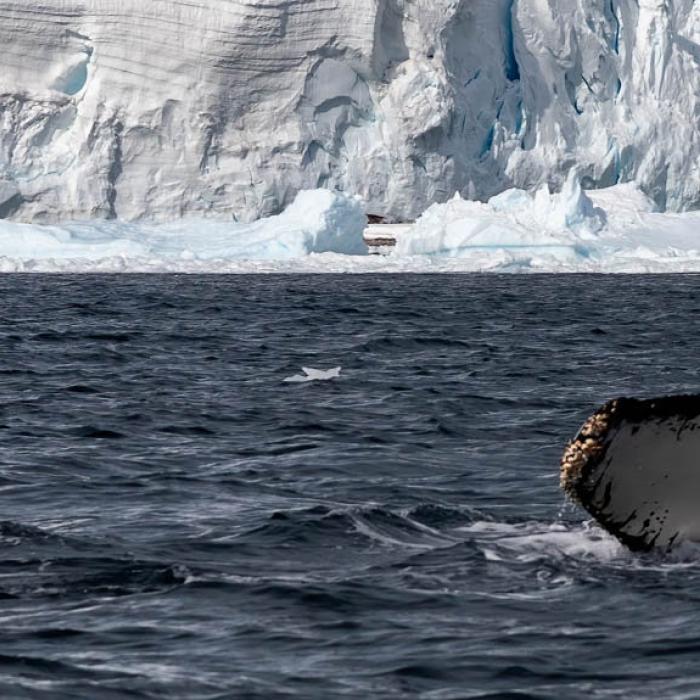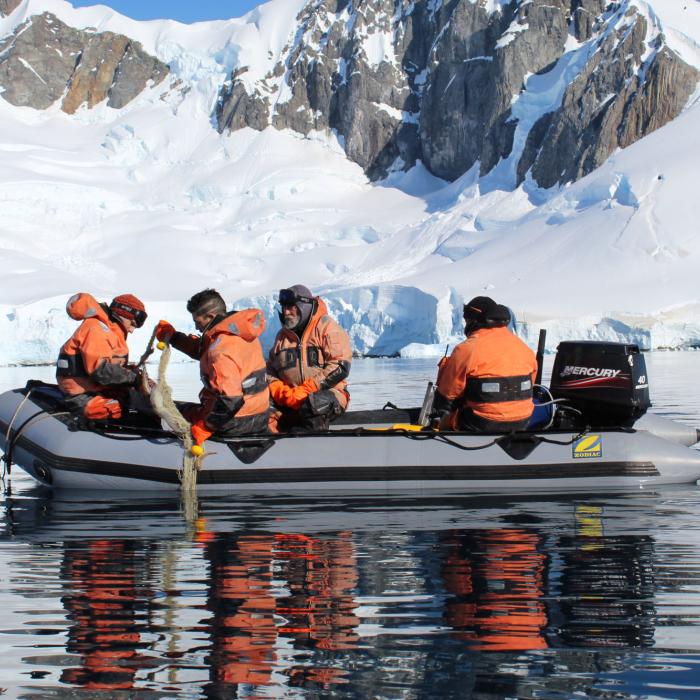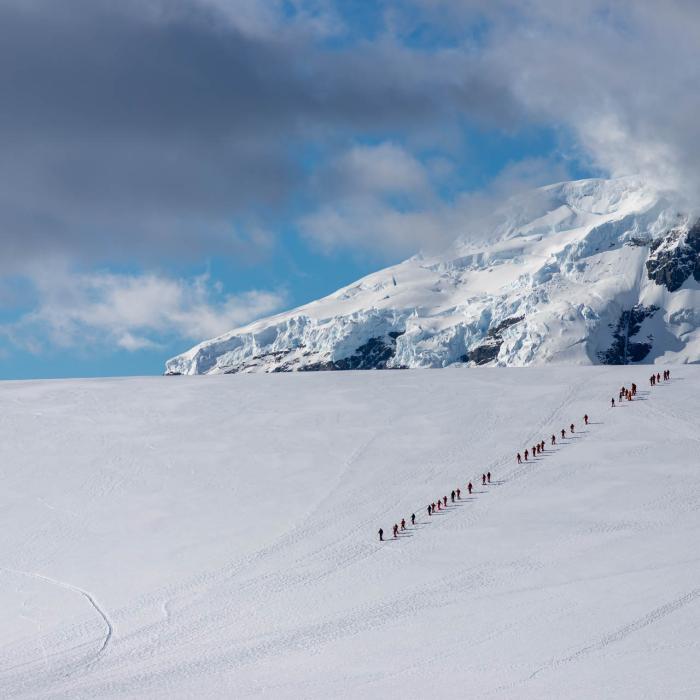
Ambassadorship Challenge: Going plant-based for the planet in January
Throughout this year we'll will be running a monthly challenge for Antarctic Ambassadors: from beach clean-ups and shorter showers to reducing car journeys, there's plenty to get involved with to make 2023 your year of Antarctic Ambassadorship. This month, Antarctic Ambassador Stella Giangarra shares her thoughts on our January Ambassadorship Challenge and how starting out small can lead to a bigger, better impact on the planet. You might be thinking to yourself, “A week without meat?! You can’t be serious.”- but hear me out! The goal here isn’t to make you miserable, but to encourage you to mix things up in the kitchen to help our planet – and give your Antarctic Ambassador journey a boost in the process. This month I'll be doing the Antarctic Ambassadors January Ambassadorship Challenge to go meat-free for a week. I'm super excited to venture out of my comfort zone and make new meals - a recent favourite is the Jennifer Aniston Salad. Delicious and so easy!
 Trying the 'Jennifer Aniston Salad' for January's meat-free week Ambassadorship Challenge
Trying the 'Jennifer Aniston Salad' for January's meat-free week Ambassadorship Challenge
To be a vegetarian means to follow a diet that excludes any meat, game or fish. Remove ALL animal by-products (eggs, honey etc.) and you’ve got veganism. There are several reasons why we are encouraged to reduce meat consumption, and beyond simply broadening our horizons in the kitchen, here are just a few additional benefits to plant-based living: Slow climate change Research by the The Food and Agriculture Organization of the United Nations shows that about 44 percent of livestock emissions are in the form of methane - produced from belching and farting cattle, manure, and oil burned from transporting carcasses to markets. The list goes on, but you get the point – there are a lot of sources of methane production when livestock is involved. The UN calculated that animals bred for their meat accounted for 18% of climate change emissions globally, warning back in 2006 that livestock was generating more greenhouse gases than all the cars and trucks in the world combined…Whoah! Reduce wildlife habitat destruction and deforestation Thirty percent of the land on Earth is distributed to livestock for permanent pastures and grazing. As the demand for meat goes up, the need for more land for grazing lands arises. By 2050, global meat consumption is expected to be twice as high as in 2008, ranging between 460 and 570 million tons. Consequently, forests are cleared for the ever-growing number of livestock and there is a destruction of vital habitats for wild animals. By reducing our meat intake, we can slow down deforestation and protect habitats for the remarkable array of wild animals. Help reduce water pollution In the last 50 years, concentrated animal feeding operations (CAFOs) have drastically increased. CAFOs are large complexes that house thousands of animals who are confined to a small area, fed grain, and have no access to pasture. CAFOs use antibiotics, hormones, and other drugs to encourage speedy growth in animals- all of which find their way into our surface and ground water. Massive amounts of livestock produced manure is dumped in lagoons and sprayed on fields as fertiliser - but the land cannot absorb the waste. As a result, this waste can runoff into our waterways and harm aquatic ecosystems, transmit disease-causing pathogens, and produce harmful algal blooms and subsequent dead zones where living creatures struggle to survive. Remember, you don’t have to cut out meat from your diet completely - just reducing the amount you consume can help. A great place to start your journey is by participating in Meatless Monday or joining the Antarctic Ambassadors “Meat-free Week” Ambassadorship Challenge. . Will you be trying meat-free meals this month?
About the author | Stella Giangarra

Stella is a graduate of Stony Brook University, School of Marine and Atmospheric Sciences, having completed her Master’s degree in Marine Conservation and Policy.
Combining her passion for the ocean, environment, and educating others, Stella joined IAATO as an intern, spearheading its Beach Clean-up Bingo project - part of the organisation’s Antarctic Ambassadors scheme and joint Clean Seas work with northern counterpart the Association of Arctic Expedition Cruise Operators (AECO).
In September 2022, Stella joined IAATO's Operations Team as Assistant Operations Manager.
Stella grew up on Long Island and frequently went on boat trips with her family, which sparked her passion for marine life. When she is not in class or studying, you can find Stella at the dog park, at the gym, or fishing with her dad.


